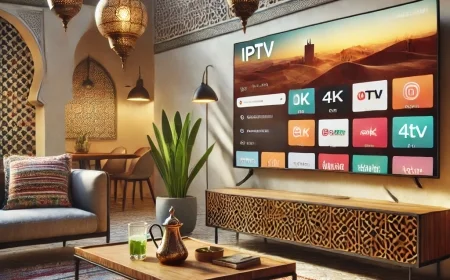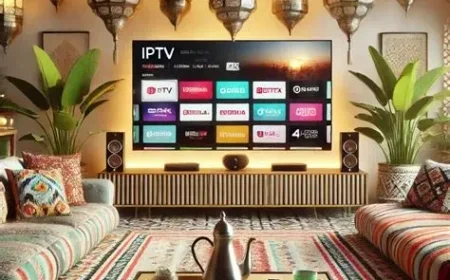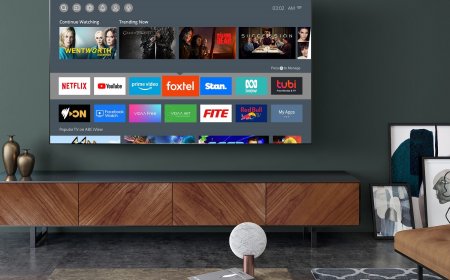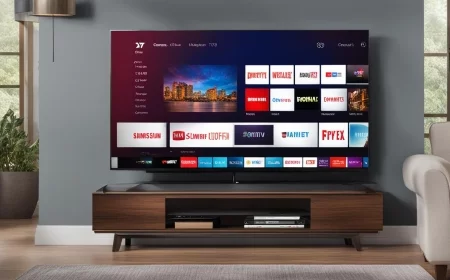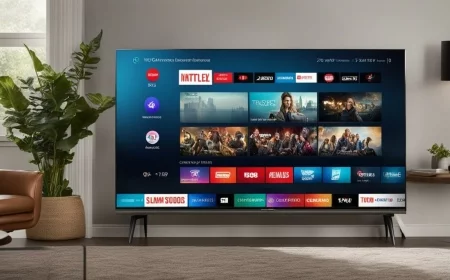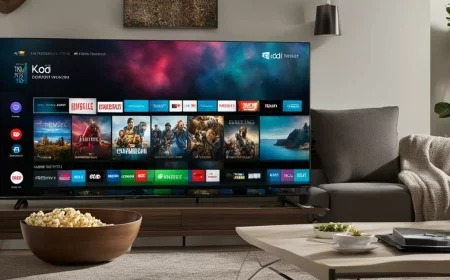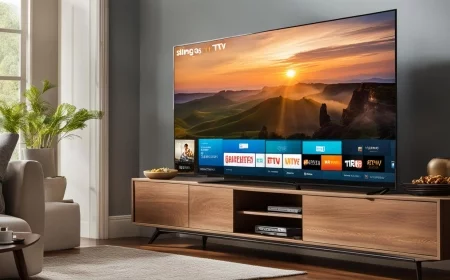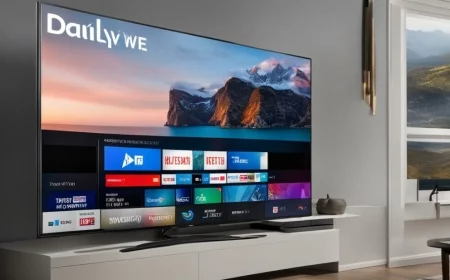What Is IPTV and How to Use It Legally?
Wondering what IPTV is? This complete guide explains Internet Protocol Television, how it works, and the crucial steps for using it legally and safely in 2026 .
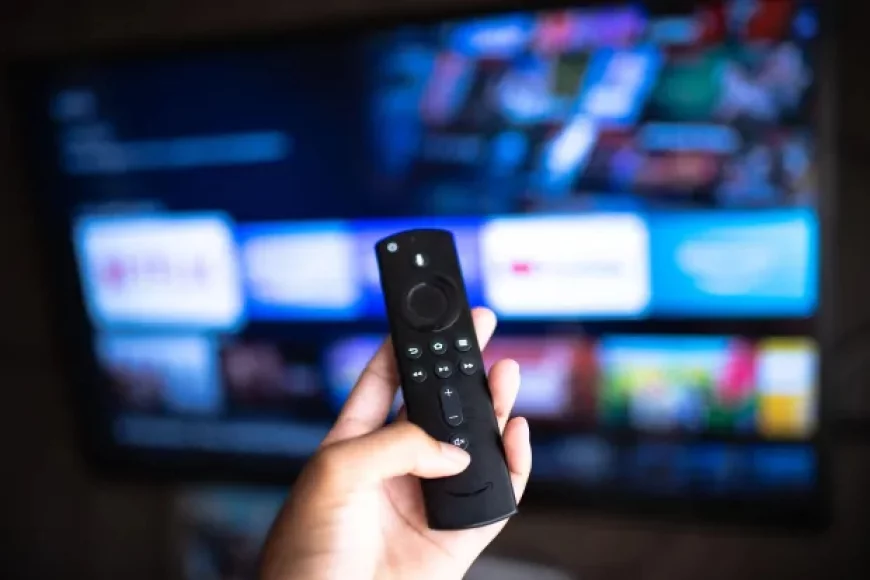
If you are looking for a reliable IPTV service, iptv abonnement Maroc offers premium channels, movies, and sports in HD & 4K quality.
What Is IPTV and How to Use It Legally? A Complete Guide
Meta Description: Wondering what IPTV is? This complete guide explains Internet Protocol Television, how it works, and the crucial steps for using it legally and safely in 2024.
Introduction
The way we watch television has undergone a revolution. Gone are the days of being tied to a fixed broadcast schedule. Today, Internet Protocol Television (IPTV) is at the forefront of this change, offering unprecedented flexibility and choice. But with its rise in popularity, a critical question emerges: Is IPTV legal?
The answer is both yes and no. IPTV itself is just a technology, and like any tool, its legality depends on how it's used. This comprehensive guide will demystify IPTV, explain how it works, and, most importantly, show you how to enjoy it without breaking the law.
What is IPTV (Internet Protocol Television)?
IPTV stands for Internet Protocol Television. In simple terms, it's a method of delivering television content over the internet (via your IP network) instead of through traditional terrestrial, satellite, or cable formats.
Think of it like this: Traditional TV sends out signals to everyone at once, like a radio station broadcasting into the air. IPTV, on the other hand, sends content directly to you over the internet, much like streaming a movie on Netflix or a video on YouTube. This allows for a more personalized and on-demand viewing experience.
How Does IPTV Work?
Instead of tuning into a channel, IPTV delivers content through a dedicated, managed network. Here’s a simplified breakdown:
1. Content Acquisition: The IPTV service acquires live TV channels, movies, and shows from various broadcasters.
2. ️ Encoding and Formatting: The content is converted into a digital format (encoded) suitable for streaming over the internet.
3. Storage and Management: The formatted content is stored on powerful servers. For Video on Demand (VOD), it's held in a library. For live TV, it's broadcast in real-time.
4. Delivery: When you select a show or channel, your request is sent to the servers, which then transmit the specific data packets to your device via the internet.
5. Playback: Your device (smart TV, set-top box, phone, etc.) receives these packets, decodes them, and plays the video seamlessly.
This "on-demand" delivery system is what makes IPTV so efficient and flexible.
The Different Types of IPTV Services
Not all IPTV services are created equal. They generally fall into three main categories:
· Video on Demand (VOD): This allows you to browse and watch a catalog of movies and TV shows whenever you want, just like Netflix or Amazon Prime Video.
· Live Television: This streams live TV channels in real-time, similar to traditional cable TV but over the internet. You can watch sports, news, and events as they happen.
· Time-Shifted Media (Catch-Up TV): This feature lets you watch previously aired shows from the last few days. If you missed an episode of your favorite series, you can catch up at your convenience. Major networks like BBC iPlayer are a great example.
The Critical Question: Is IPTV Legal?
Yes, IPTV is perfectly legal when the service provider holds the proper licenses and distribution rights for the content it offers.
The legality issue arises with unlicensed IPTV services. These are services that stream copyrighted content—premium TV channels, live sports events, pay-per-view, and the latest movies—without permission from or payment to the original creators and rights holders.
Legal IPTV Services vs. Illegal IPTV Services
Feature Legal IPTV Services Illegal IPTV Services
Content Licensing ✅ Hold official licenses for all content. ❌ No licenses; stream stolen, copyrighted content.
Pricing Transparent, monthly/yearly subscription fees. Often suspiciously cheap (e.g., "$10 per month for 10,000 channels").
Reliability & Quality High-quality, reliable streams with consistent uptime. Prone to buffering, downtime, and poor video quality.
Security Secure, official apps from app stores; protect your data. Often require sideloading apps; can be a security risk (malware, data theft).
Customer Support Professional customer service and technical support. Little to no customer support.
Device Integration Official apps on major platforms (Android TV, Fire Stick, iOS). Often require third-party apps like "IPTV Smarters" or "TiviMate."
Examples Sling TV, Hulu + Live TV, YouTube TV, Philo, Pluto TV. Unofficial services sold through Telegram, Facebook, or obscure websites.
How to Use IPTV Legally and Safely: A 4-Step Guide
To ensure you're on the right side of the law and protect your devices, follow these steps:
1. Choose a Reputable, Licensed Provider
· Stick to well-known, established services in your region. Examples include YouTube TV, Sling TV, Hulu + Live TV, fuboTV, and Philo in the US, or Sky Glass, BT TV, and Virgin Media in the UK.
· These companies have public reputations to uphold and operate within the law.
2. Be Wary of "Too Good to Be True" Offers
· If a service offers thousands of live channels, including every premium sports network and pay-per-view event, for a meager monthly price, it is almost certainly illegal. Legitimate licensing is expensive, and those costs are reflected in the subscription price.
3. Use Official Apps from Official Stores
· Download your IPTV app only from the official Google Play Store, Apple App Store, or Amazon Appstore. Legitimate services will always have a verified, official app.
· Avoid services that require you to "sideload" an app using an unknown APK file, as this is a common source of malware.
4. Use a VPN for Privacy (Even with Legal Services)
· While a VPN won't make an illegal service legal, it is a smart tool for online privacy. It encrypts your internet traffic, preventing your Internet Service Provider (ISP) from tracking your online activity. This is useful even with legal streaming to avoid potential bandwidth throttling.
Top Legal IPTV & Live TV Streaming Services
Here are some of the most popular and legal alternatives to cable TV:
· YouTube TV: Offers a robust channel lineup, unlimited cloud DVR, and a great user interface.
· Hulu + Live TV: Combines a vast on-demand library with live TV channels.
· Sling TV: A more budget-friendly option with customizable channel packages (Sling Orange & Sling Blue).
· fuboTV: Originally focused on sports, it has expanded to a broad channel lineup with excellent picture quality.
· Pluto TV & Xumo Play: Free, ad-supported streaming live TV services with curated channels.
Conclusion
IPTV is a powerful and convenient technology that represents the future of television. By understanding the difference between licensed and unlicensed services, you can make an informed choice that supports content creators and keeps you safe online.
The key takeaway is simple: Enjoy the incredible benefits of IPTV by subscribing only to reputable, licensed providers. This ensures you get high-quality, reliable service while enjoying your favorite content with complete peace of mind.
Disclaimer: This article is for informational purposes only. It is your responsibility to ensure that the services you use are legal in your country. Always respect copyright laws.
What's Your Reaction?
 Like
0
Like
0
 Dislike
0
Dislike
0
 Love
0
Love
0
 Funny
0
Funny
0
 Angry
0
Angry
0
 Sad
0
Sad
0
 Wow
0
Wow
0

